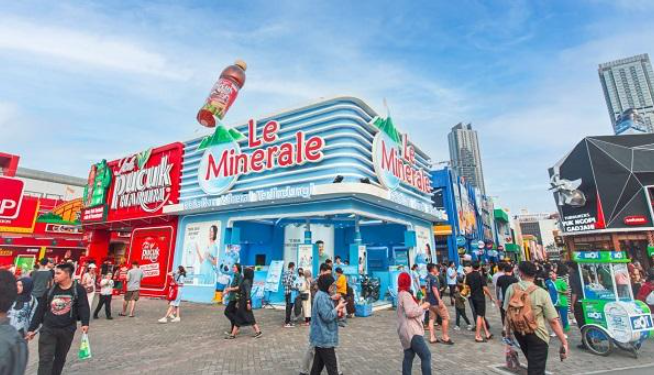I was at the
Jakarta Fair (PRJ) recently and something stood out.
Mayora was everywhere. Their booths were packed, the branding felt instantly familiar, and people were lining up for snacks they clearly knew and loved. From
Le Minerale,
Mie Oven to Kopiko and
Teh Pucuk, their products felt like a natural part of everyday life. That moment made me realize just
how deeply rooted Mayora is in Indonesia’s consumer landscape. Behind the friendly and approachable image is a company that runs with discipline and focus. They emphasize
affordability, operational efficiency, and scale. This is exactly what allows them to remain
resilient, especially when consumer spending is under pressure.
What stands out about Mayora is not only the
reach of their products but also
how well they manage the entire system behind them. They control the supply chain from beginning to end. Most of their key raw materials, such as coffee and cocoa, are sourced locally. Around
85 percent of their inputs come from within Indonesia, which helps
shield them from global price volatility. They also manage their own logistics, ensuring products are delivered quickly from factories to store shelves while keeping costs under control.
In the
first quarter of 2025, Mayora posted
sales of Rp6.8 trillion. This was down around 3 to 8 percent YoY and QoQ due to seasonal effects. But despite that, sales volume jumped by roughly 40 percent, mainly driven by higher demand for snacks and chocolate products. Margins stayed flat as input costs like cocoa and sugar remained high, and their operating expense ratio increased from
12 to 13 percent. Even so,
consumer demand stayed strong, helped by the government’s Rp600,000 cash assistance and the
free school meal program. With these factors, management is confident they can deliver
Rp2.4 to Rp2.6 trillion in net income this year, reflecting 1
0 to 20 percent growth in the first half alone.
Looking ahead, management expects the
second quarter to remain relatively soft. Seasonal factors like school fees and Idul Adha spending have temporarily slowed household consumption. That said, they are
optimistic that demand will gradually recover in the second half of the year. One early driver of that recovery is their strong participation in large-scale consumer events like the
Jakarta Fair. With high foot traffic and direct access to their core consumer base, events like these are expected to boost
brand visibility and sales momentum heading into the year-end.
Interestingly, Mayora also sees a clear
downtrading trend in the market, where consumers are
shifting from premium products to more affordable options as household budgets tighten. But rather than viewing this as a risk, Mayora sees it as an
opportunity. They believe their
pricing is already highly competitive, with
quality that holds up well even against lower-priced local producers. In a market where consumers are trading down,
Mayora is well-positioned—affordable, but with trusted brands and consistent quality.
In terms of valuation, MYOR is trading at just around
14 times forward earnings, a notable discount for a company with
dominant market share, stable demand, and well-established brands. Their earnings profile tends to be steady, with fewer surprises, supported by strong control over costs and mostly local sourcing of raw materials. That operational resilience, combined with a clean balance sheet and full exposure to the domestic market, makes
MYOR one of the more compelling stories in the consumer space right now, especially for those keeping an eye on
defensive growth at a reasonable price.



Comments